Monthly Journal
June 2023
International Press Review
The most relevant events of the area through international sources
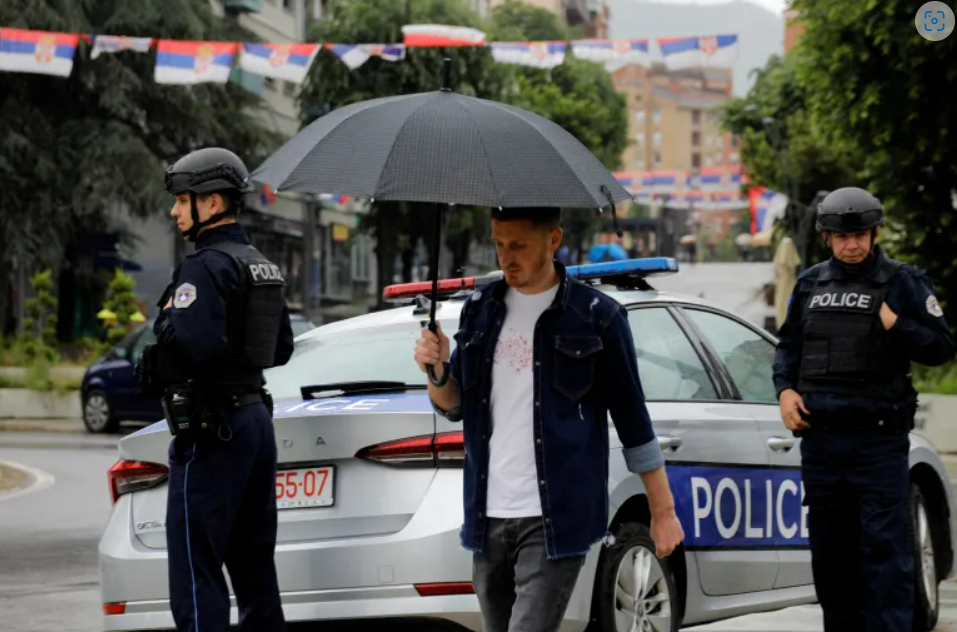
A solution for the crisis in Kosovo not in sight
Al Jazeera
Tensions continued rising between Serbia and Kosovo in June after Pristina installed ethnic Albanian mayors in four Serb-majority municipalities in the north of Kosovo in May, provoking massive protests among Kosovo Serbs. The EU and the US have urged both sides to reduce tensions, while even Washington, one of the strongest allies of Pristina, openly criticized Kosovo’s moves. Western powers have called for new municipal elections in northern Kosovo, hoping to reduce ethnic tension. However, EU held crisis talks between Serbian President Vucic and Kosovo’s PM Kurti, mediated by EU’s Foreign policy chief Joseph Borrell, did not appear to score any breakthroughs, with no face-to-face encounters between the leaders of Kosovo and Serbia.
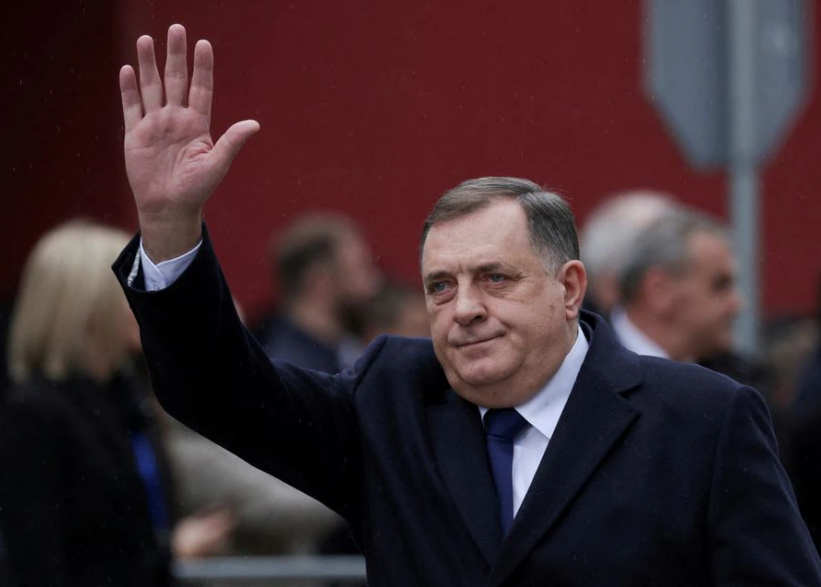
Dodik launches a ‘legal secession’ attempt
Reuters
Lawmakers in Bosnia’s autonomous Serb Republic – Republika Srpska (RS) voted to temporarily suspend rulings by Bosnia and Herzegovina’s Constitutional court, leading to concerns of a “legal secession” and exacerbating political divisions in the Balkan country. The move was instigated by separatist Bosnian Serb President Milorad Dodik, who criticized the court for including foreign judges and for being ‘anti-Serbian’. The decision was made in response to the court’s recent rule changes, allowing sessions and decisions to be made without Serbian judges. The lawmakers stated that the court’s decisions would not be enforced in the RS until a national law on the court was passed by the national parliament.

Protests against Vucic spread in Serbia, but numbers decreasing
The New York Times
Protests in Serbia against the violence-instigating behaviour of state officials and media outlets loyal to the government, as well as against President Vucic, have been gathering momentum in Serbia since early May, when in two massacres 20 persons were killed. At the beginning of June, the biggest street demonstrations since 2000 took place, with tens of thousands of people were on the streets of Belgrade. The “Serbia Against Violence” protests have become a platform for a broader critique of the Serbian government, and the protesters are calling for the resignation of the country’s leader Vucic. At the end of June, protests spread to other Serbian cities, but the numbers of people on the streets decreased – a possible sign of tiredness among demonstrators.
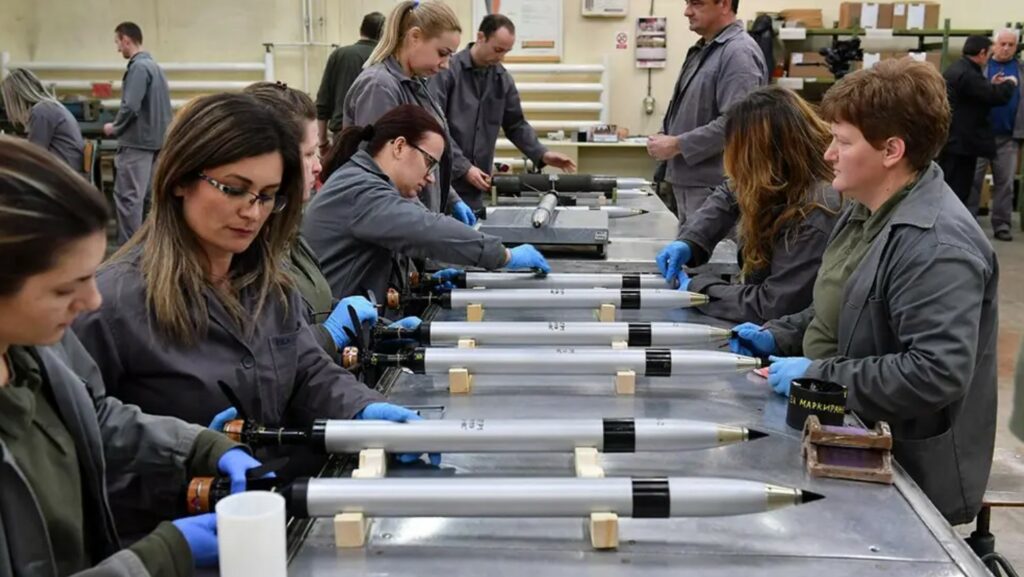
Belgrade ‘agrees’ to Serbian ammunitions sent to Kyiv
The Financial Times
Serbian President Aleksandar Vucic has suggested that he is not opposed to his country selling ammunition to intermediaries who send it to Ukraine, The Financial Times reported. This represents a significant shift as Serbia has traditionally backed Moscow and refused to align with western sanctions on Russia after its invasion of Ukraine. Funnelling of the Serb ammunition to the Ukrainian front has come about before the US, NATO, and the EU recently backed Serbia in a recent flare-up of ethnic tensions in Kosovo, the daily suggested. Vucic maintained that Belgrade sought to act in a “neutral way” and that he was aware of US government reports that Serbian ammunition has ended up in Ukraine via intermediaries, as well as that he had no plans to stop that.
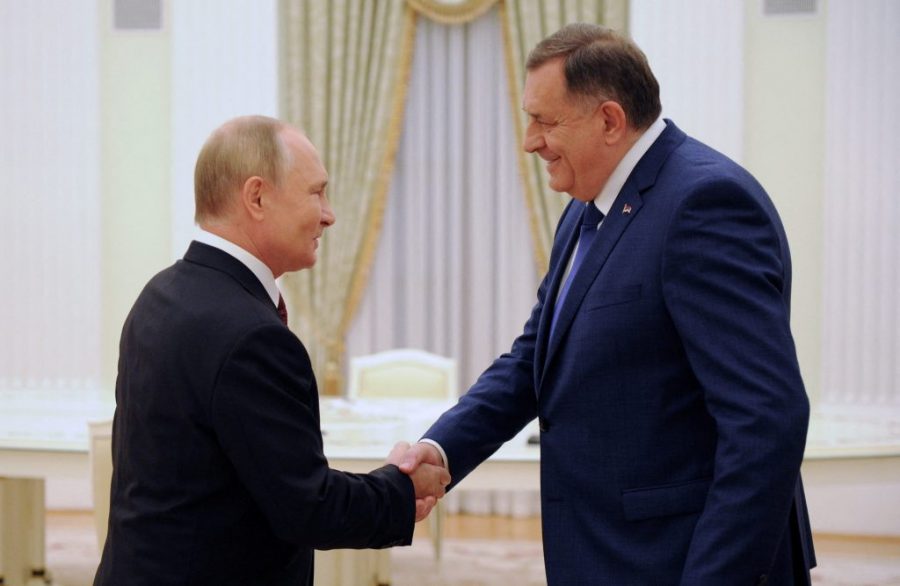
Putin honours Dodik with highest Russian medal
N1
Russian President Vladimir Putin has awarded Bosnian Serb leader Milorad Dodik with the Order of Alexander Nevsky for his “great contribution to the development of cultural-humanitarian ties of the peoples of the Russian Federation and Bosnia and Herzegovina.” Dodik met three times with Putin in the past 12 months. The recognition comes after their last meeting in May, where the president of Bosnia’s Serb-majority entity Republika Srpska said Russia was “simply forced” into military operation in Ukraine. Serbian President Aleksandar Vucic received the same award in 2019.
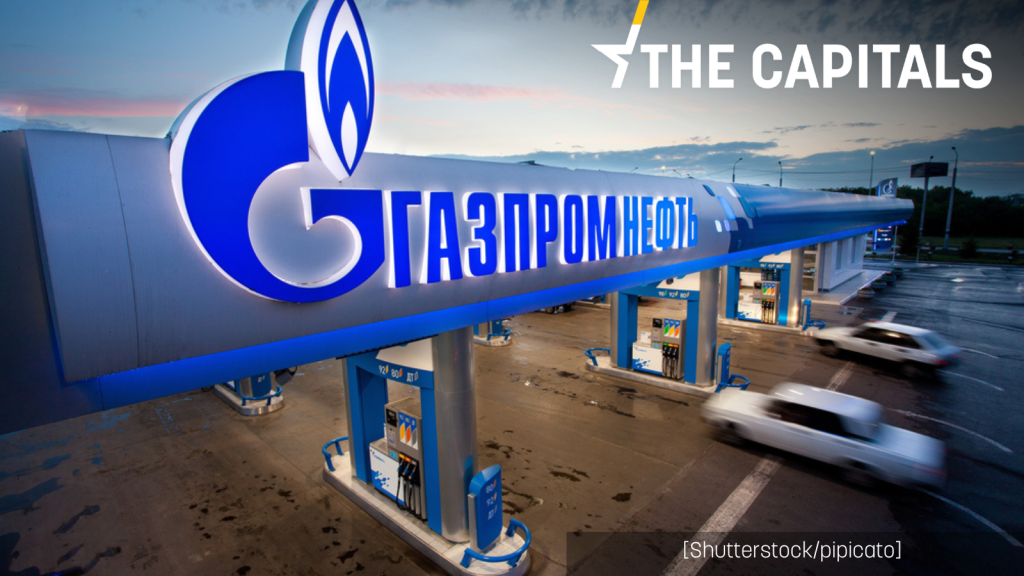
Bulgaria to sue Russian Gazprom over gas supplies
Euractiv
The Bulgarian Energy Ministry is preparing an arbitration claim against Russian state gas company Gazprom for suspending gas supplies in April 2022 after Bulgaria refused to pay in Russian rubles. Bulgaria and Poland were the first EU member states to suffer Russian gas cuts after they refused to pay in Russian rubles in violation of dollar-denominated contracts. The announcement of the arbitration case was made a few hours before the government in Bulgaria was replaced by the new, regularly elected government supported by the pro-European parties.
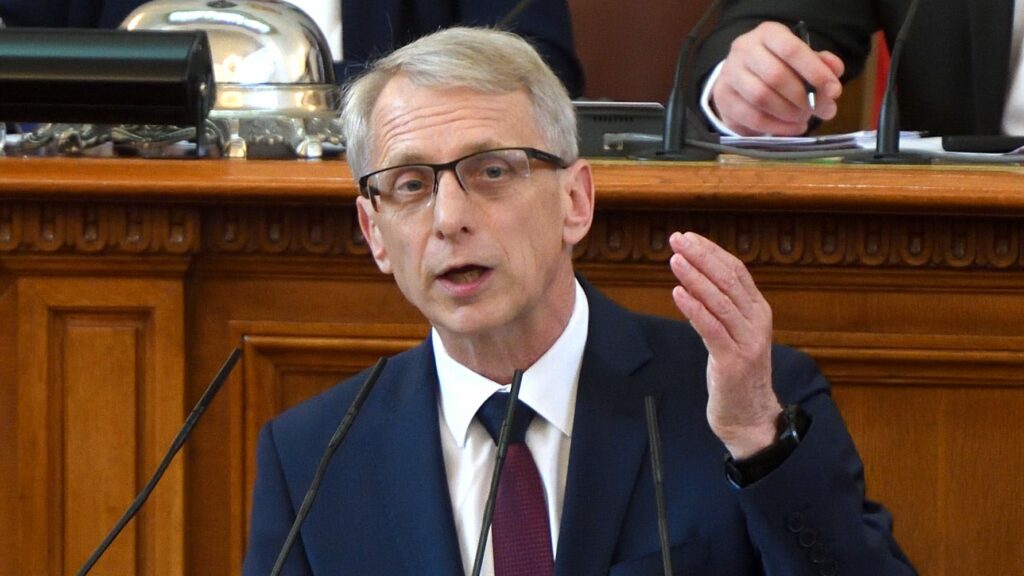
New Bulgarian government to prioritise Schengen and Eurozone entry
Balkan Insight
Nikolay Denkov, a scientist and member of the We Continue the Change party, has become Bulgaria’s new prime minister after a joint government established by rival political forces GERB/United Democratic Forces and We Continue the Change/Democratic Bulgaria was approved by parliament. Denkov said that his cabinet will work towards Bulgaria entering the Schengen zone by the end of 2023, on systematic changes in border control management, on reducing inflation, as well as starting a “campaign against the disinformation around Bulgaria’s adoption of the euro”.
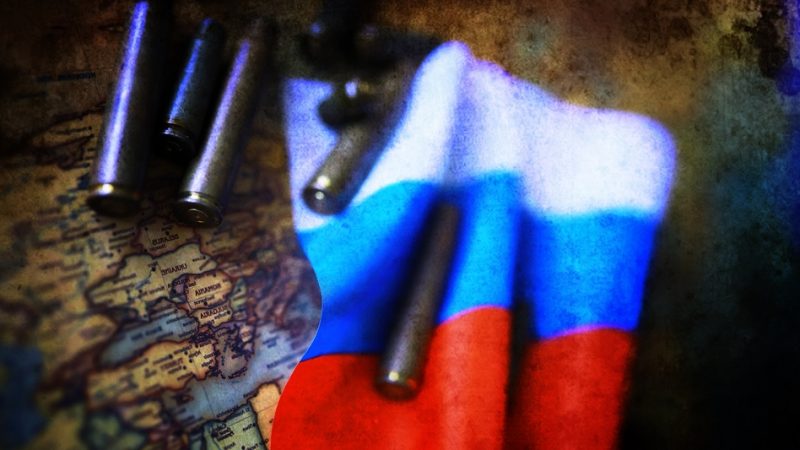
Moldova and Romania react against Russian threats
Euractiv
Romania and Moldova have condemned Russian threats to blow up a bridge connecting the two countries, which were announced by Kherson’s self-proclaimed pro-Russian governor, Vladimir Salido. Salido asserted that Russia could target the bridge, claiming this would serve as Russia’s response to the Ukrainian army’s attack on the bridge that connects the Kherson region with Crimea. Both Bucharest and Chisinau strongly condemned the threat. “Hitting civilian infrastructure is a crime of war”, Romanian authorities said.
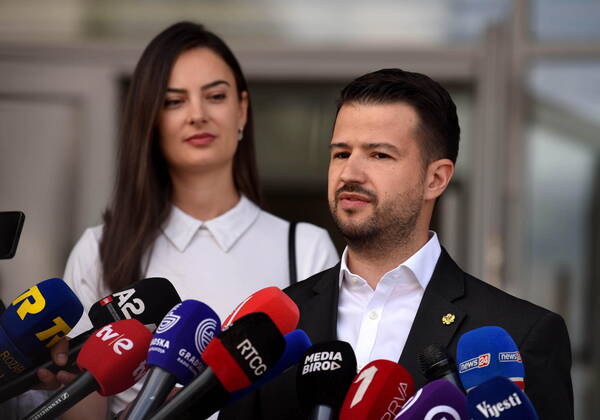
Reformist and pro-EU party wins elections in Montenegro
ANSA-AFP
Montenegro’s Europe Now Movement (PES) won the snap election in the Balkan NATO member country. The PES, which has pro-European Union policies and also wants closer ties with neighbouring Serbia, failed to secure enough votes to rule alone and will have to seek partners in the 81-seat parliament to form the government. The pro-European Democratic Party of Socialists (DPS) of former President Djukanovic and a group of smaller and to it allied parties, which ruled Montenegro between 1990 and 2020, came in second.
The Insight Angle

István Hegedűs
Chairman of the Hungarian Europe Society, a Budapest-based think tank focused on international affairs, particularly European Union issues. He has been politically active since the early days of the Hungarian regime-change, participating in the national roundtable negotiations in 1989 as a delegate of opposition groups. He served as a liberal forces’ member of the first free elected Hungarian Parliament in 1990 and held the position of vice-chairman of the Foreign Affairs Committee. Today, he is recognized as one of the country’s leading
political analysts and intellectuals.
In recent years, Hungary under the Orban’s leadership has emerged as a significant player in the Balkans, fostering strong relationship with leaders such as Vucic and Dodik. How do you interpret Hungary’s foreign policy in the region? Do you see the alliance of these leaders with Hungary as advantageous or disadvantageous on the path to joining EU?
This process is not entirely new. Orban had already begun cultivating special relationships with like-minded political leaders and parties in the Balkans several years ago. For instance, he established close ties with Slovenia’s former Prime Minister, Janez Jansa. Orban sought to exert influence on Balkan affairs, including sensitive issues like the Bosnia Peace Agreement and the future of the Serbian Bosnian Republic, Republika Srpska. Additionally, he aimed to shape the media landscape and support politicians who share illiberal ideas and display scepticism towards the European Union. Given the ongoing conflict and aggression by Putin in Ukraine, this becomes even more perilous, not only for liberal democracy but also for the Balkans.
When considering whether Serbia’s special relationship with Orban poses a problem for Balkan countries, I would argue that it does. In the eyes of the current Western liberal political elite, Orban is as a genuine problem and a disruptive force that frequently uses his veto power against a unified European stance. If these politicians in the Balkans maintain a close association with Orban, that could lead to increased scepticism regarding the future enlargement of the European Union to include new Balkan candidate countries. Existing EU member states are reluctant to welcome new members that could potentially form a bloc against like-minded, pro-European, and anti-Putinist political forces, which currently hold significant influence. Therefore, Orban likely aspires to play a pivotal geopolitical role in the Balkans and requires supporters from the region as he confronts what he perceives as the global political liberal elite. Hence, this can be viewed as part of Orban’s larger, somewhat megalomaniacal worldview and political agenda.
Orban and Hungarian Foreign Minister Szijjarto frequently visit Serbia to express support for Vucic. Is this the signal of the formation of a “new Visegrad,” with Hungary together with other Balkan countries led by semi-autocratic leaders?
The existing Visegrad cooperation has effectively ceased to exist due to Orban’s political stance. However, Visegrad has never truly functioned as a strong alliance, with limited cooperation between Poland and Hungary, and even less so with Slovakia and the Czech Republic. Visegrad is essentially defunct, and Orban might seek new allies in the Balkans. However, I believe it is an exaggeration to assume he can establish institutionalized cooperation with Balkan leaders who share similar views. Such a move would be detrimental to the European aspirations of these countries. Even Vucic exercises caution and seeks to maintain better relations with European institutions, particularly Germany, rather than solely relying on Orban, who is currently isolated at European level. Orban’s desire to create such a group may be wishful thinking at this point, as it is highly unrealistic to establish such an institutionalized alliance.
Orban may have, however, a ‘special relationship’ with Vucic and the Bosnian leader Dodik, along with one or two other leaders. Though, it is important to note that even within the Balkans, many democratic leaders might oppose this idea. Croatia, for example, would certainly not support such a special cooperation now. And from the Hungarian perspective, it makes little sense to forge a strong relationship exclusively with Serbia against the EU. Orban must also be cautious, and particularly the Serbs must exercise caution if they wish to maintain their European aspirations, avoid conflicts with Kosovo, and rely on EU support.
Furthermore, Orban’s isolation prevents him from being a decision-maker within the European Union. He is more inclined to obstruct decisions rather than make them. Additionally, his peculiar and close relationship with Putin poses a problem even for Serbia’s current leadership if they are to deepen their alliance with Orban. Hungary itself is an exception within the EU, for its robust ties with Moscow and China.
Hungary stands out as an exception within the European Union, maintaining strong relations with both Moscow and Beijing. A similar situation can be observed in Vucic’s Serbia. In your opinion, why is Budapest attempting to “break” the united front of the EU?
Following Putin’s aggression, several EU member states modified their energy mix and re-evaluated their future energy supplies, shifting away from gas and oil towards renewable sources. Hungary could have pursued a similar path. However, Orban’s political ideology plays a significant role in this sector as well. He is acting more from a personal conviction and according to his hopes for the future than doing what is in Hungary’s best interest. Orban envisions Hungary as a key player, positioned between Russia and the West, between Ukraine and Russia. This concept, however, appears irrational given the current circumstances. Hungary has a strained relationship with Ukraine, and other EU leaders do not trust Orban. At the same time, Orban maintains a relationship with Russia, yet, he is not merely a puppet of Putin.
In any case, the dance Orban has played in recent years has become increasingly irrelevant. It is the EU that makes decisions, and his rhetoric now primarily serves domestic purposes. Orban is attempting to create manoeuvrability for himself in the future, while he continues to disregard European values. He believes he could have a significant historical role, potentially on a global scale if politicians like Trump regain power or if other changes occur globally or within Europe. It seems that Orban hopes to play an important role in European politics again, in the future. However, there are no rational economic arguments to explain why he is isolating Hungary at the European level or escalating conflicts with the United States.
The U.S. ambassador to Hungary, David Pressman, has expressed strong disapproval of Hungary’s special relationship with Russia. Orban’s actions cannot be understood from a liberal or rational perspective. It appears that he feels unable to retreat, as he still holds onto the belief that his time would come.
Hungary joined the EU in 2004, together with several other Central- and Easter European countries, where now populist and nationalist leaders are ruling. Given what we are witnessing for the last two decades in Poland and Hungary, was it too early for the enlargement? And what is the lesson we could learn for the Balkans?
When considering the 2004 and 2007 enlargements, along with the subsequent inclusion of Croatia, I would not categorize them as mistakes. At the time, nobody could have foreseen the rise of illiberal populist movements in certain countries, particularly Hungary and Poland. However, similar shifts could potentially occur in other countries aspiring to join the EU. What the EU should take more seriously are European norms, which may not have been given sufficient attention during the 2004 and 2007 enlargements. Issues such as the rule of law, media freedom and human rights should be prioritized. While democratic backsliding can happen over time, it would be unwise to conclude that enlargement was fundamentally wrong or to assume that the EU should refrain from expanding towards the Balkan countries due to potential future risks. Instead, new safeguards should be introduced.
It is important to recognize that illiberalism and populism are not confined to the Eastern part of Europe; they exist in various regions. The EU should find ways to address leaders like Orban and the Polish leaders, including Kaczynski, without halting the enlargement process. The EU must develop mechanisms and set an example for these countries. We should not let the actions of a few troublemakers from Central and Eastern Europe impede the enlargement process.
It is more and more evident that newcomers or new candidates should meet all the necessary criteria and norms. However, Europe Union should not be afraid of enlargement. It is crucial to strike a balance by ensuring that aspiring members fulfil the required standards while maintaining a proactive approach to the enlargement process.
The Key Story
Strategic trends
Hungarian PM tries to develop stronger ties
with populists in the Balkans
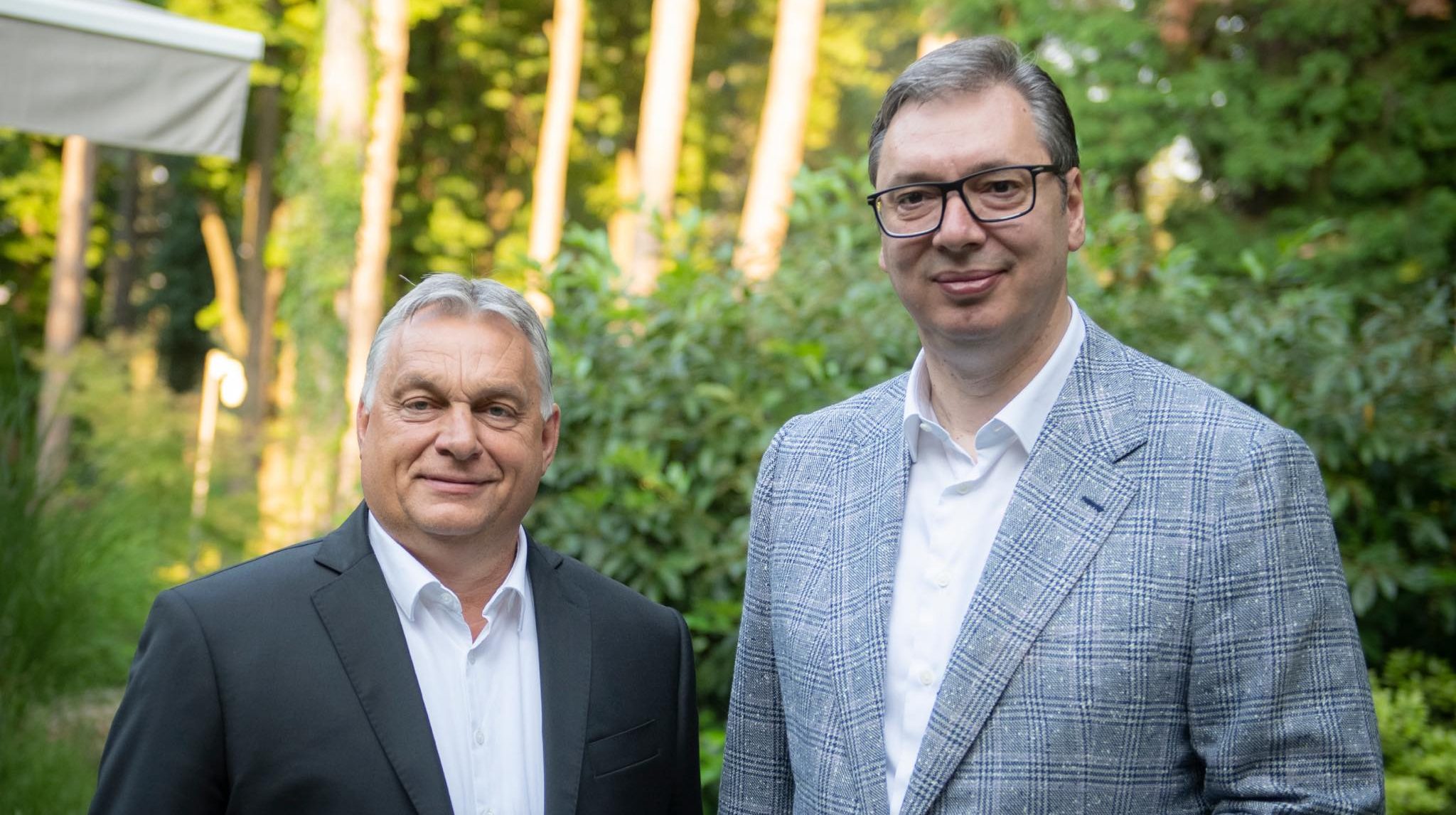
Hungarian Prime Minister Viktor Orban, known for his contentious policies and actions and widely criticized from European Union leaders for undermining the rule of law and freedom of media and for its controversial stances towards Russia, is lately intensifying an already strong involvement in the Western Balkans, presenting himself as the only EU leader which is sincerely interesting in opening the doors of the bloc to the region.
Orban’s strategy seems to be to establish even closer connections, in particular with leaders who share his political leanings, such as Serbian President Aleksandar Vucic and Bosnian-Serb leader Milorad Dodik. This strategic move has the potential to influence the geopolitical dynamics of the Balkans and impact the European Union aspirations of countries in the region.
Since Viktor Orban regained power in 2010, Budapest has been emerging as a significant actor in the Western Balkans, with the goal of transforming Hungary in a regional power and positioning itself as a primary player in Central Europe.
That ‘approach to the Balkans’ of Orban was particularly evident last month during his tour in the region. During an official visit to Bosnia and Herzegovina, the Hungarian leader met only shortly with Bosnia’s senior state officials in Sarajevo, and has immediately travelled to Republika Srpska, the Bosnian Serb political entity, where he held meetings with the Bosnian Serb President Milorad Dodik, openly pro-Russian and pro-secession. Orban was hosted by Dodik at his ranch outside Banja Luka and the Bosnia Serb leader thanked him for “for the respect he showed to Republika Srpska with his visit.”
In Bosnia, Orban expressed his support for the swift accession of Bosnia and other Balkan countries into the European Union, emphasizing that their inclusion could inject fresh energy and vitality into what he described a “troubled” 27-member bloc. “Whatever they say in Brussels, we are for the fast accession of the Balkans, that is, Bosnia and Herzegovina, into the EU. For us Hungarians, the Balkans is not a problem but rather the last reserve of European resources,” Orban claimed. Furthermore, he said that Budapest is opposing EU’s policies based on sanctions and he petitioned for the EU to redirect funds slated for Ukraine to the Balkans.
During a meeting with Albanian Prime Minister Edi Rama, Orban openly criticized the European Union by expressing his dissatisfaction with the slow pace of EU expansion. He specifically highlighted his concerns about Albania waiting for 13 years for the opening of negotiations, stating that the EU’s expansion was progressing “shamefully slowly.” Orban described this pace as suicidal for the EU.
The populist Hungarian leader, after participating at a Serbian military exercise in April this year, met also with the Serbian President Vucic in Belgrade in June, further deepening an already strong political and personal relationship. In the occasion, the Serbian state-owned company Srbijagas and Hungary’s MVM signed a contract to establish a new joint gas company, SERBHUNGAS. Furthermore, Orban and Vucic agreed on how and in what way to build an oil pipeline between Novi Sad and Hungary, to bring Russian oil to the Balkans through the so-called existing Druzhba pipeline.
Even more important was Orban’s announcement of a key development in the Serbia-Kosovo relations, the release of three Kosovo’s policemen arrested in June by the Serbian police. “Serbian President Aleksandar Vucic has just informed me that in accordance with the request made at our meeting” at the end of June, the Serbian authorities released “the three previously arrested Kosovo policemen from custody, (…) a decision which is a clear proof of the strategic cooperation between our countries, and our mutual commitment to the peace and stability of the Balkans,” Orban wrote on Twitter.
Taking into account also the growing economic cooperation between Hungary and the Western Balkans, with major Hungarian companies expanding in the region, it looks like Orban, after having lost grip on the so-called Visegrad group due to the Hungarian stance on the Russian aggression, is trying more energetically to develop strong relations with the Balkans, searching for new allies outside the EU.
The process is not void of risks. The very fact that Orban, relatively isolated in the EU, is pushing for the enlargement to the Balkans could increase the hesitancy of several member states to expand the bloc to the region. Furthermore, Orban’s strong link with Dodik could fuel secessionist tendencies in Bosnia and strengthen the position of the populist leaders, like Vucic in Serbia. Additionally, it might increase the energy dependence of the region from Russia, making it more difficult for the Western Balkans to diversify its energy sources.
Further News and Views
Romania to become biggest gas producer in Europe
Sources: Reuters, Romania Insider, Upstream Online, Offshore Technology
Romania could become a net exporter and the biggest gas producer in the EU in the coming years as the Neptun Deep Black Sea gas project, expected to begin production by 2027, comes online. The project will significantly improve the energy independence of Romania and of Europe as a whole, reducing the dependence of the continent from Russian gas. The project is expected to hold recoverable volumes of around 100 billion cubic metres (bcm) of gas. OMV Petrom, majority-controlled by Austria’s OMV, estimated the deepa-water project would cost 4 billion euros. Romania expects to earn up to 20 billion euros in state revenues.
Serbia and Kosovo fight a ‘war’ through controversial arrests
Sources: Voice of America, Balkan Insight, ABC News
A court in Serbia has released three police officers from Kosovo who were detained near the disputed border between the former war foes in the acme of the ongoing crisis between Belgrade and Pristina. The officers were charged with illegal possession of weapons and explosive devices, and were detained in mid-June. Serbia says the three crossed into the country from Kosovo, while Kosovar authorities insisted they were kidnapped at the territory of Kosovo. The United States and the European Union had joined Kosovo’s government in demanding their release. Meanwhile, between May and June, Kosovo’s police arrested up to eight Serbs suspected of being involved in clashes against NATO troops in May and other criminal activities, provoking the rage of Belgrade and protests by Kosovo Serbs, but also from the EU.
EU - NATO
Serbia hosting major military exercise with NATO countries
Sources: Radio Free Europe, Balkan Insight, Serbian Ministry of Defence
Serbia has chosen the West by hosting the Platinum Wolf military exercise with troops from NATO member states, according to a spokesperson for the US Embassy in Belgrade. The exercise included 100 US troops. The further Serbia goes in its integration into Euroatlantic security structures, the shorter its path to the European Union, the US spokesperson added. Platinum Wolf is the only international exercise that the Serbian military is taking part in this year after a moratorium on those exercises was imposed following Russia’s invasion of Ukraine. Moscow said it was closely monitoring the maneuvers held in Serbia.
The Platinum Wolf exercise has been carried out seven times on the territory of Serbia since 2014. The aim of the exercise is to maintain the readiness and interoperability of the Serbian Armed Forces with NATO forces. Serbia is offering expertise and training to Allies and partners at the Chemical, Biological, Radiological and Nuclear (CBRN) Training Centre. The exercise includes training in basic infantry skills and peacekeeping operations.
ECONOMICS
Bulgaria turning to Washington for major energy project
Sources: Euractiv, Balkan Green Energy News, American Nuclear Society
Bulgaria is getting closer to agree with the US to build a nuclear reactor after the Bulgarian nuclear power plant Kozloduy signed an official engineering contract for a nuclear reactor using the AP-1000 technology of Westinghouse. This is a big change for Bulgaria which, until the start of the Russian invasion of Ukraine, relied entirely on Russian nuclear technology and on Russian nuclear fuel. “We are pleased to begin work to deliver the world’s most advanced, Generation III+ reactor technology to provide clean and reliable baseload energy for our customer and the people of Bulgaria,” said David Durham, Energy Systems President for Westinghouse. In December 2022, the Kozloduy NPP concluded a contract with Westinghouse to supply nuclear fuel for the fifth reactor of the Bulgarian nuclear power plant, which was built using Russian technology. Bulgaria’s two operating nuclear reactors were built using Russian technology more than 30 years ago when the country was part of the Soviet bloc.

Stefano Giantin
Journalist based in the Balkans since 2005, he covers Central- and Eastern Europe for a wide range of media outlets, including the Italian national news agency ANSA, and the dailies La Stampa and Il Piccolo.

